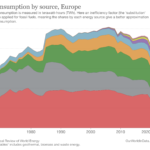Johannes Eber – Good morning Europe blog
Authoritarian rulers are known for having an ambivalent relationship with reality. If promises do not match actual developments, then discrepancies must be made invisible. The problem is that the longer one denies those discrepancies, the greater they usually become. Too little is done then. It’s hard to fight issues that don’t officially exist.
In Turkey, discrepancies can no longer be ignored.
The success and popularity of Recep Tayyip Erdogan, Turkey’s imperious president who is almost two decades in power now, had one reason: the country’s economic development. The economic boom since the early 2000s increased employment and incomes, making Turkey an upper-middle-income country. But the economic upswing has ended.
That’s how the Worldbank puts it:
“… In the past few years, growing economic vulnerabilities and a more challenging external environment have threatened to undermine these achievements. … The current overall macroeconomic picture is more vulnerable and uncertain, given rising inflation and unemployment, contracting investment, elevated corporate and financial sector vulnerabilities, and patchy implementation of corrective policy actions and reforms.”
This is the economic environment in which Erdogan wants to be reelected in June next year. One does not need to be a fortune teller to predict that Turkey will have a politically turbulent year. Also because the prospects for economic recovery are poor. Erdogan got too many things wrong.
Maybe the largest failure: Turkey’s monetary policy. The main mistake here: monetary policy isn’t made by the central bank anymore but by Erdogan himself. When Erdogan did not like monetary policy, he fired the central banker.
Basically, Erdogan makes his own monetary policy today. His conviction, at least shown to the outside: low interest rates help stabilise prices. In fact, it usually works the other way around. Interest rates are the cost of borrowing money from the central bank. If the central bank raises interest rates, less money is lent; more is borrowed if the central bank lowers interest rates.
So the more money is borrowed, the more money is in circulation. If more money is in circulation, this lowers the value of money. In other words: there is inflation.
Inflation also occurs as a result of devaluation against other currencies. In 2021 the Turkish currency Lira lost 44 per cent of its value against the US-Dollar. The result: imports to Turkey (usually paid in a foreign currency) became significantly more expensive.
By now, inflation in Turkey has reached the highest level since Erdogan’s ruling party came to power almost two decades ago. In January, the country’s consumer price index rose 48.7 per cent year on year, as the Turkish Statistical Institute said, up from 36 per cent in December. By the way: after the December figures were published, Erdogan had fired the head of the institute.
The president’s actionism no longer catches on with voters. Because inflation hits the middle and lower classes the hardest – the very people who supported Erdogan and his AKP for a long time.
This is over now. Approval rating for Erdogan is its lowest since 2015, at 38 per cent, while prospective presidential candidates like Ankara Mayor Mansur Zavas and Istanbul Mayor Ekrem Imamoglu, both from the main opposition Republican People’s Party (CHP), score 60 per cent and 51 per cent respectively.
Same with the AK Party (AKP). A poll put support for the party at 27 per cent, against 37 per cent who said they voted for the party in the last parliamentary election in 2018.
So, things are looking bad for Erdogan. Improvement is not in sight. Erdogan has replaced state institutions with personalised rules. And these rules lack expertise. “Having dispensed with all the co-founders of the AKP and discarded all serious economic expertise, there is no longer anyone around him to say that the sultan has no clothes,” David Gardner wrote in the Financial Times. No good prospect for fair and free elections in the coming year.
Author Profile

-
Founder of the "Good morning Europe blog" and Pixel economist
Guest author for European Liberals for Reform
Johannes' articles are originally written for the “Good morning Europe” blog (www.goodmorningeurope.org) and the Pixel economist (https://thepixeleconomist.substack.com).
We were given permission to publish his articles on the European Liberals for Reform blog.
Latest entries
Post Disclaimer
The opinions expressed by the author of this post do not necessarily represent the opinions and policies of ELfR.




